- Details
-
Category: Cerro Blanco
-
Published: Tuesday, 21 April 2020 15:18
YSUCA
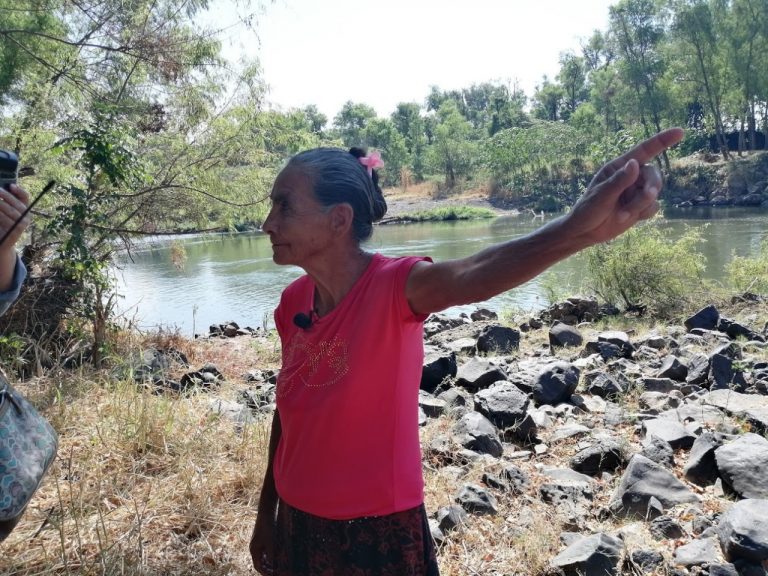 The Cerro Blanco mine is located just 15 kilometres from the border with El Salvador, in the municipality of Asunción Mita in the department of Jutiapa, Guatemala. Since 2006, the project has posed a threat for El Salvador as several border towns may be impacted by the contamination released due to their location at just at 6 kilometers away.
The Cerro Blanco mine is located just 15 kilometres from the border with El Salvador, in the municipality of Asunción Mita in the department of Jutiapa, Guatemala. Since 2006, the project has posed a threat for El Salvador as several border towns may be impacted by the contamination released due to their location at just at 6 kilometers away.
The Ostúa River starts in Asunción Mita, and carries the contamination from the mine into Lake Güija, confirmed Cidia Cortés, a biologist and researcher with the National Roundtable Against Metallic Mining in El Salvador.
The findings of the study ‘The impact of the Cerro Blanco cross-border mine on water and health of El Salvador’, also determined that contamination from the mine could potentially affect half a million Salvadorans if it reaches the Lempa River, the most important fresh water supply for Salvadorans.
Read more ...
- Details
-
Category: Water Crisis El Salvador
-
Published: Monday, 20 April 2020 15:54
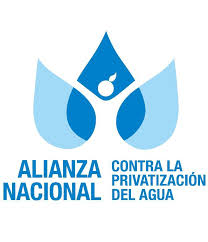
San Salvador, February 6th, 2020
The different sectors of civil society and the popular organizations hereby represented recognize water as a source of life and a public good, whose access constitutes a fundamental human right of humanity. We also recognize that without sufficient and good quality of water, and without a comprehensive watershed management approach, it will not be possible to develop our country for the well-being for our population. Consequently, we believe it is the State's obligation to guarantee access to this vital resource in an equitable, efficient and sustainable manner.
The dramatic water crisis in El Salvador, in terms of equal access of quality and quantity, is widely recognized and scientifically documented. However, the lack of progress in the discussion on a General Water Law in the Environment and Climate Change Commission in the last thirteen years has condemned our population to suffer the increasingly serious consequences generated by the lack of good governance of our common goods.
In this context, we welcome with satisfaction the decision taken by the current Environment and Climate Change Commission, in January 2020, to reopen the legislative debate on this urgent law.
However, we are appalled at the decision to start from scratch, once again, annulling the important agreements and progress made in 2013-2015 by the sitting Commission. Faced with this situation, the undersigned organizations, who have been calling in a proactive and rigorous way since 2006 for adequate legislation for the management of water in El Salvador, have united around our CITIZEN PROPOSAL of the General water Law.
The proposal contains of three elements:
- The articles approved by the Committee on the Environment and Climate Change between 2013 and 2015;
- A modified and widely agreed-upon proposal for the water management authority with a public nature
- And, other articles of the 2012 MARN proposal where the principles of water as a common good and a human right, citizen participation and watershed management approach are key.
We ask for your serious consideration and prompt approval as the first step in the fight to remedy the current water crisis, to protect our environment, guarantee the health and well-being of our population, and promote sustainable development in our nation.
Based on article 18 of the Constitution of the Republic, and on the legislative initiatives of the deputies that they support, we request this Honorable Legislative Assembly to admit and discuss our proposal both in the Environment and Climate Change Committee, and in the Legislative Plenary.
- Details
-
Category: Water Crisis El Salvador
-
Published: Monday, 20 April 2020 14:28
Carlos Hernandez - Contrapunto
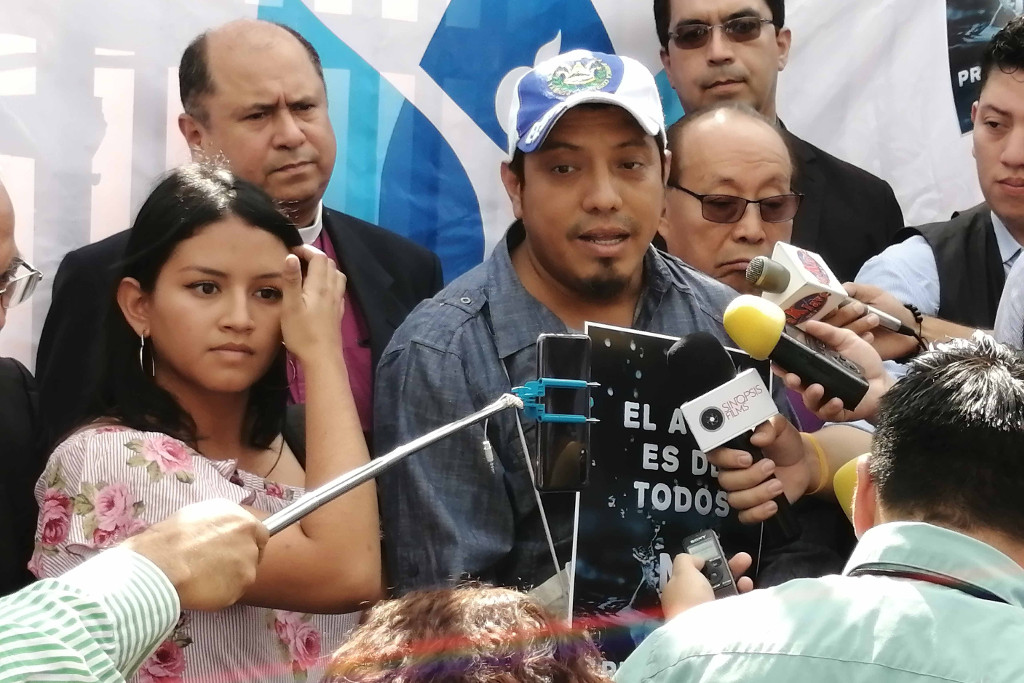 Civil society organizations continue to pressure the Legislative Assembly to approve a General Water Law that would benefit the majority of the Salvadoran population.
Civil society organizations continue to pressure the Legislative Assembly to approve a General Water Law that would benefit the majority of the Salvadoran population.
Representatives of the National Alliance against the Privatization of Water, accompanied by religious and academic leaders, presented, on February 6th, a renewed citizen proposal for a General Water Law at the Legislative Assembly.
These have promoted this initiative for the last 14 years and are working to ensure that the authorities of El Salvador guarantee and safeguard water as a human right. The representatives of the National Alliance against the Privatization of Water work to support the public management of water resources.
The law, first presented in 2006 by the Water Forum of El Salvador, is a comprehensive proposal that calls specific attention to the problems of quality and quantity of water resources, as well as consumption, demand and coverage. The poor quality of service is a problem experienced by semi-urban and rural communities who experience a permanent violation of the human right to water.
Read more ...
- Details
-
Category: Regional News
-
Published: Monday, 20 April 2020 12:14
* Deutsche Welle
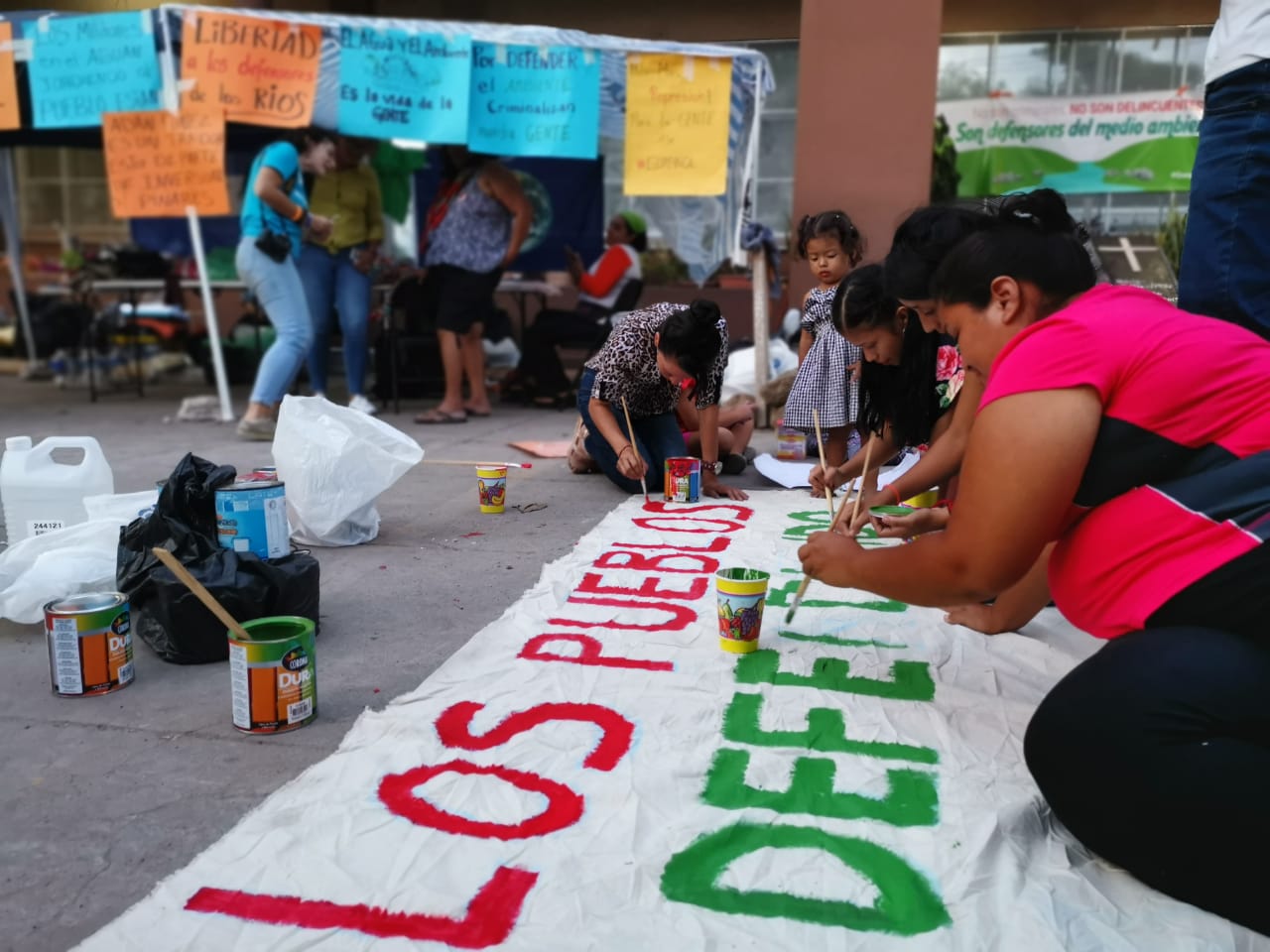 COVID-19 threatens the entire population globally, but puts the most vulnerable at greater risk, including prisoners in prisons, who, many times, cannot keep their distance due to the lack of space and the deplorable sanitary conditions they live in. This is the situation of seven environmental activists who have been held in preventive detention since last September at the Olanchito Penal Center, in the department of Yoro, Honduras, and another environmental defender who is in a prison in La Ceiba, in the department of Atlántida.
COVID-19 threatens the entire population globally, but puts the most vulnerable at greater risk, including prisoners in prisons, who, many times, cannot keep their distance due to the lack of space and the deplorable sanitary conditions they live in. This is the situation of seven environmental activists who have been held in preventive detention since last September at the Olanchito Penal Center, in the department of Yoro, Honduras, and another environmental defender who is in a prison in La Ceiba, in the department of Atlántida.
For the Honduran authorities, the eight activists are criminals who hinder the country's economic development. But according to their lawyers, they are citizens who defend fundamental rights such as the right to water. The conflict between the residents of the Guapinol community in the north of the country and Inversiones Los Pinares, a mining company, is prototypical for the situation in Honduras. For years, the community has been fighting against the opening of an iron oxide mine; they consider that the mine puts the natural resources of the area at risk. According to the residents, the contamination of local rivers already occurred during the previous works in the mine: the river are indispensable sources of water for their daily life and economic subsistence.
Read more ...
- Details
-
Category: Regional News
-
Published: Monday, 20 April 2020 11:25
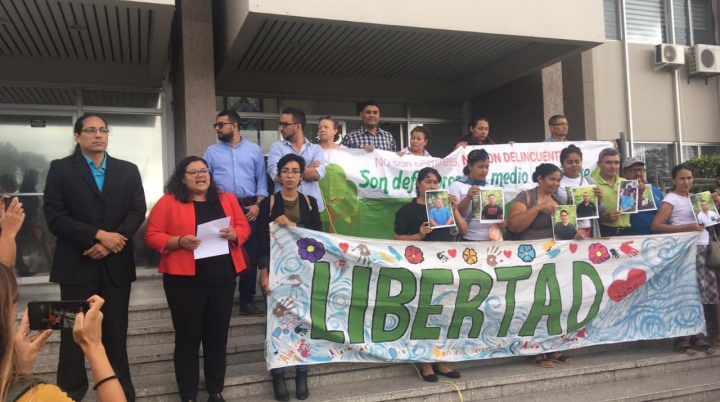 San José, February 27, 2020.- Today, the Center for Justice and International Law (CEJIL) argued before the Honduran Court of Appeals that the deprivation of liberty of seven defenders of the Guapinol rivers and San Pedro must be revoked, as this constitutes an arbitrary measure contrary to international human rights standards and guarantees of due process.
San José, February 27, 2020.- Today, the Center for Justice and International Law (CEJIL) argued before the Honduran Court of Appeals that the deprivation of liberty of seven defenders of the Guapinol rivers and San Pedro must be revoked, as this constitutes an arbitrary measure contrary to international human rights standards and guarantees of due process.
The Honduran Court of Appeals must resolve the appeals filed by the defenders' lawyers to review the imposition of preventive detention since September 01, 2019, after having been formally prosecuted for the crimes of aggravated arson and illegal detention. The process faced by the defenders resulted from a series of peaceful demonstrations carried out in the municipality of Tocoa, Colón, in order to stop the operations of the Los Pinares mining company and protect the Guapinol and San Pedro rivers from contamination.
Through of an amicus curiae brief, CEJIL presented arguments, based on international human rights law standards, to ask that the decision adopted by the Court guarantees the right to defend rights, the right to personal liberty, the presumption of innocence and due process.
Read more ...
- Details
-
Category: Regional News
-
Published: Monday, 20 April 2020 10:56
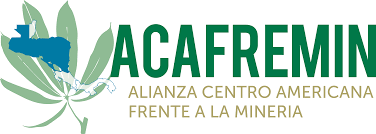
Tegucigalpa, February 26, 2020 – Preliminary conclusions of a report commissioned by the Central American Alliance against Mining (ACAFREMIN) - presented at the Peoples for Water meeting in Tegucigalpa, Honduras - found that the Honduras government is responsible for the systematic violation of the human rights of communities in Tocoa, department of Colon. These communities are affected by the impacts of the ASP I and ASP II mining concessions owned by Inversiones los Pinares / Ecotek mining.
The research team composed by Dr. Bernie Hammond and Dr. Amanda Grzyb (Western University, Canada), Dr. Michael Berghoef (Ferris State University, USA), Dr. Ainhoa Montoya (University of London, England), and journalist and human rights lawyer, Dimitri Lascaris, made a seven-day visit to Honduras, in June 2019, to verify reports of human rights violations against environmental defenders who oppose the mining project in the municipality of Tocoa, Colón. The project is the property of Lenir Pérez, a businessman is linked to the powerful Facusse family.
Read more ...
 The Cerro Blanco mine is located just 15 kilometres from the border with El Salvador, in the municipality of Asunción Mita in the department of Jutiapa, Guatemala. Since 2006, the project has posed a threat for El Salvador as several border towns may be impacted by the contamination released due to their location at just at 6 kilometers away.
The Cerro Blanco mine is located just 15 kilometres from the border with El Salvador, in the municipality of Asunción Mita in the department of Jutiapa, Guatemala. Since 2006, the project has posed a threat for El Salvador as several border towns may be impacted by the contamination released due to their location at just at 6 kilometers away.

 Civil society organizations continue to pressure the Legislative Assembly to approve a General Water Law that would benefit the majority of the Salvadoran population.
Civil society organizations continue to pressure the Legislative Assembly to approve a General Water Law that would benefit the majority of the Salvadoran population. COVID-19 threatens the entire population globally, but puts the most vulnerable at greater risk, including prisoners in prisons, who, many times, cannot keep their distance due to the lack of space and the deplorable sanitary conditions they live in. This is the situation of seven environmental activists who have been held in preventive detention since last September at the Olanchito Penal Center, in the department of Yoro, Honduras, and another environmental defender who is in a prison in La Ceiba, in the department of Atlántida.
COVID-19 threatens the entire population globally, but puts the most vulnerable at greater risk, including prisoners in prisons, who, many times, cannot keep their distance due to the lack of space and the deplorable sanitary conditions they live in. This is the situation of seven environmental activists who have been held in preventive detention since last September at the Olanchito Penal Center, in the department of Yoro, Honduras, and another environmental defender who is in a prison in La Ceiba, in the department of Atlántida. San José, February 27, 2020.- Today, the Center for Justice and International Law (CEJIL) argued before the Honduran Court of Appeals that the deprivation of liberty of seven defenders of the Guapinol rivers and San Pedro must be revoked, as this constitutes an arbitrary measure contrary to international human rights standards and guarantees of due process.
San José, February 27, 2020.- Today, the Center for Justice and International Law (CEJIL) argued before the Honduran Court of Appeals that the deprivation of liberty of seven defenders of the Guapinol rivers and San Pedro must be revoked, as this constitutes an arbitrary measure contrary to international human rights standards and guarantees of due process.